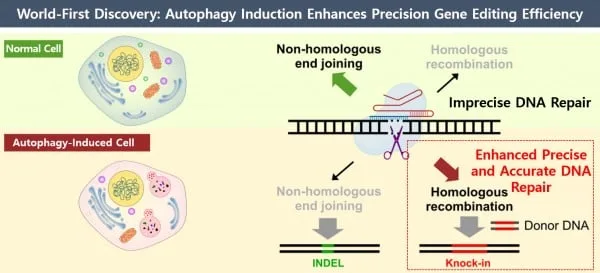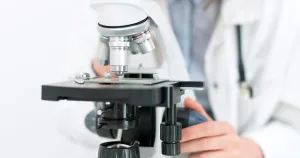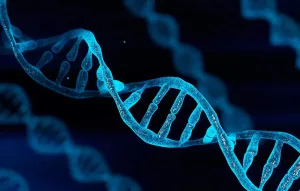Boosting CRISPR Gene Editing with Autophagy
Exciting news from South Korea! A team of researchers has discovered a way to significantly improve the efficiency of CRISPR-Cas9 gene editing. This breakthrough could have major implications for treating genetic diseases.
The Research Team
The study was conducted by Dr. Hye Jin Nam’s team at the Korea Research Institute of Chemical Technology (KRICT), in collaboration with Professors Dong Hyun Jo and Sangsu Bae at Seoul National University College of Medicine. Their combined expertise led to this important finding.
The Key Discovery: Autophagy
The researchers found that triggering autophagy, a natural cellular process where cells clean out damaged components, dramatically enhances the precision and effectiveness of CRISPR-Cas9 gene editing that relies on homology-directed repair (HR). This enhancement can be up to threefold!
How Autophagy Works
Autophagy can be induced in a couple of ways:
- Nutrient Deprivation: By limiting the nutrients available to the cells.
- mTOR Inhibition: By blocking the mechanistic target of rapamycin (mTOR) pathway, which regulates cell growth and metabolism.
Why This Matters
Improving the efficiency of CRISPR-Cas9 is crucial for its therapeutic application. The ability to precisely edit genes opens doors to treating a wide range of genetic disorders, including Thalassemia. This discovery represents a significant step forward in gene editing technology.
Final Overview
The collaborative effort of Dr. Nam’s team and the professors at Seoul National University has unveiled a novel approach to boost CRISPR-Cas9 gene editing. By harnessing the power of autophagy, they’ve paved the way for more effective and precise gene therapies, offering hope for treating genetic diseases.




+ There are no comments
Add yours